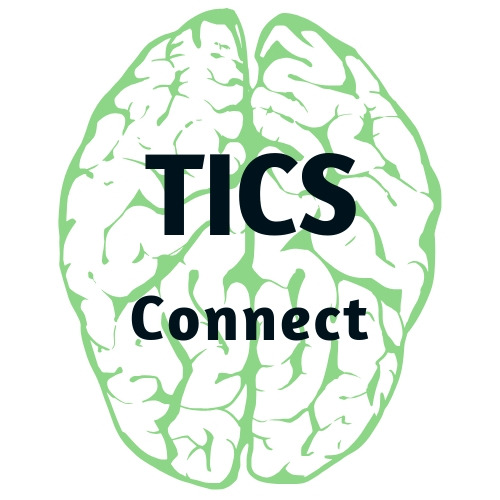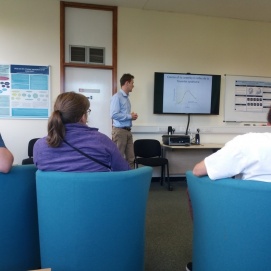
The CiMH wants to lead the way in Psychological Research by involving members of the public who would benefit from the research findings.
One project supporting this goal is TICS Connect, led by Dr Valerie Brandt, and co-organised by Dr Emma Palmer-Cooper. The project was awarded a University of Southampton Public Engagement with Research award, and launched in October 2018. The aim of the project is to build strong links with the Tourette community and their families, to share information about clinical services available for Tic disorders, and get the public involved in setting research priorities in this area of health research. TICS connect works in partnership with Tourettes Action, a UK-wide Tourette syndrome charity.

Most recently, the School of Psychology held a free TICS connect Tourette syndrome information event on September 26th 2019 at the University of Southampton. Dr. Valerie Brandt gave a talk about general information regarding tic disorders and Dr. Samuele Cortese gave a talk about treatment options. Afterwards, attendees took an hour to exchange experiences as patients, carers and clinicians. Discussions included the difficulties families experienced; families reported having difficulties entering into CAMHS and experiencing difficulties to receive a Tourette syndrome diagnosis because clinicians were cautious about “labelling” children with this diagnosis. Gaps in knowledge were also discussed, and where this information would be important to families of patients with tics, such as the long-term predictors of tic severity in children with tics. The event was a very positive and open exchange of experiences and ideas and received very positive feedback by the attendees.
This research and public engagement is particularly important because Tics and Tourette syndrome can be very debilitating and often severely affect patients’ quality of life. Understanding how research could inform patients and their families, and improve quality of life is very important. Approximately 1% of the population suffers from Tourette syndrome (having multiple motor and vocal tics for more than a year) and a much higher percentage suffers from milder forms of tic disorders, particularly children. Despite this, tics often remain unrecognised as a neuropsychiatric disorder, and the average time before a diagnosis is made is five years. 90% of Tourette patients also suffer from obsessive-compulsive disorder (OCD) or attention-deficit hyperactivity disorder (ADHD) which is something our research also hopes to address.
